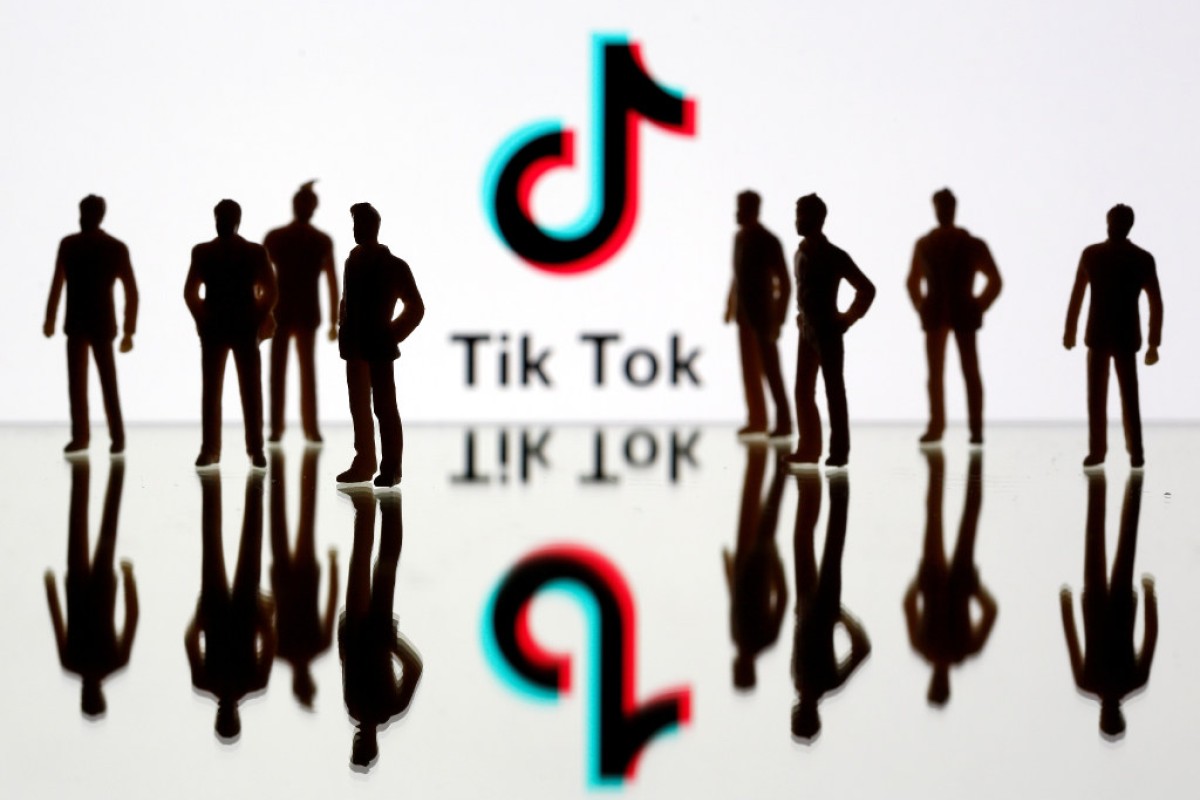
TikTok suspends teen's account after posts about China's detention camps in Xinjiang
The move fuels concerns about how the popular app will respond to criticism of the Chinese government
 TikTok has come under fire for its connections to mainland China and alleged moderation of content.
TikTok has come under fire for its connections to mainland China and alleged moderation of content.Feroza Aziz started her TikTok video like a typical makeup tutorial, telling viewers she would show them how to get long eyelashes. Then the 17-year-old stopped abruptly, calling instead on viewers to start researching the harrowing conditions facing Muslims in China’s detention camps.
The surprising bit of modern satire quickly went viral on TikTok, the short-video app and global phenomenon owned by a Beijing-based tech firm. But in the hours afterward, Aziz’s TikTok profile was suspended. By Tuesday she remained unable to access her account.
The videos, and Aziz’s suspension, have quickly touched off a public debate about one of the world’s fastest-growing social media platforms, including over its approach to political issues and its support of free speech in countries outside China, where its parent company ByteDance is headquartered.
TikTok used by Chinse Uygurs to raise awareness of 1 million detained in camps
The episode has highlighted a signature challenge facing TikTok: Famous for its lighthearted memes and singalong videos, the app increasingly finds itself facing scrutiny due to its close ties to a Chinese conglomerate that must adhere to the country’s strict censorship rules.
TikTok has said it makes decisions about the content it surfaces and suppresses for US users independent from the Chinese government. But its past practices and limited transparency have fueled deep skepticism among lawmakers, tech experts and some of its users.
The popularity of Aziz’s videos shows how TikTok has increasingly become a new home for discussion of politics and current events among young viewers on the Web. But the suspension has fueled concerns over how TikTok will respond to a growing level of acrimonious debate and discussion of issues critical of the Chinese government.
Russian child influencers score millions of fans on Instagram
TikTok has said its audience prefers to use the video app for entertainment, not political debates, and that its executives have pushed to preserve the app as a refuge for positivity online. To abide by that mandate, former employees said they were instructed to follow guidelines set by Chinese moderators and remove social or political content that would have been easily accepted elsewhere around the web.
TikTok representatives said Tuesday that Aziz’s account was not suspended because of her criticism of China and that the company “does not moderate content due to political sensitivities.” Instead, they said she had broken the rules by registering a new account: A previous account of hers had been banned, they said, because she had posted a video referencing Osama bin Laden that had violated rules about promoting terrorist content.
Aziz, who said she is a high school junior in New Jersey, said she never got any explanation about TikTok’s penalties on her account. The video TikTok referred to, she said, was an obvious bit of dark humor, and involved her singing in front of a series of a men that she suggested were attractive. A copy she shared shows bin Laden’s face appearing, for less than a second, as the surprise punchline.
“As Muslims, we’re ridiculed every day, so that was me making a joke to cope with the racism we face on a daily basis,” she said. “I’ve been told to go marry a terrorist, go marry bin Laden, so I thought: ‘Let me make a joke about this. We shouldn’t let these things get to us.’”
She said she found it “scary” that she was blocked for making what seemed to her like a harmless joke. And she said she felt it was “very suspicious” that her account was suspended only after she posted viral videos criticizing the home country of TikTok’s parent company.
Eric Han, the head of TikTok’s U.S. Trust and Safety team, said in a statement to The Washington Post that Aziz’s account was banned after the bin Laden post earlier this month. The app’s community guidelines, he said, strictly prohibit any videos that “promote and support” terrorist organisations.
The lash-curling videos, which reference the camps in China’s Xinjiang region, can still be viewed on TikTok, where they have attracted more than 500,000 views. “TikTok does not moderate content due to political sensitivities and did not do so in this case,” Han said. Reviews of video for moderation can be triggered by several factors, Han said, including if a video passes certain “virality benchmarks.”
Facebook and Twitter suspend thousands of fake accounts from the Chinese government
Aziz said late Tuesday she could not access the account, and that TikTok has provided her no information about whether she can use the service again. When TikTok users have videos removed for violating guidelines, Han said, they are not told the specific reason but can appeal the removal. “Her previous account was banned, so we wouldn’t have had communication with her on that account,” he added.
Aziz’s other videos on TikTok resemble many of the unrestrained, boundary-pushing parodies that often go viral on the Web. In other videos, she jokes about marrying her cousin, living with a strict Muslim mother, and being profiled online as a terrorist. In one video criticising TikTok as “racist,” she said she posts “relatable Muslim content, things that Muslims can laugh at.”
She said she used the makeup routine as a way to get the attention of viewers who might otherwise ignore the news. But she said she worries about how TikTok’s rules could influence the kinds of information young viewers see online.
The suspension, she said, is “just another reason for me to speak louder.”